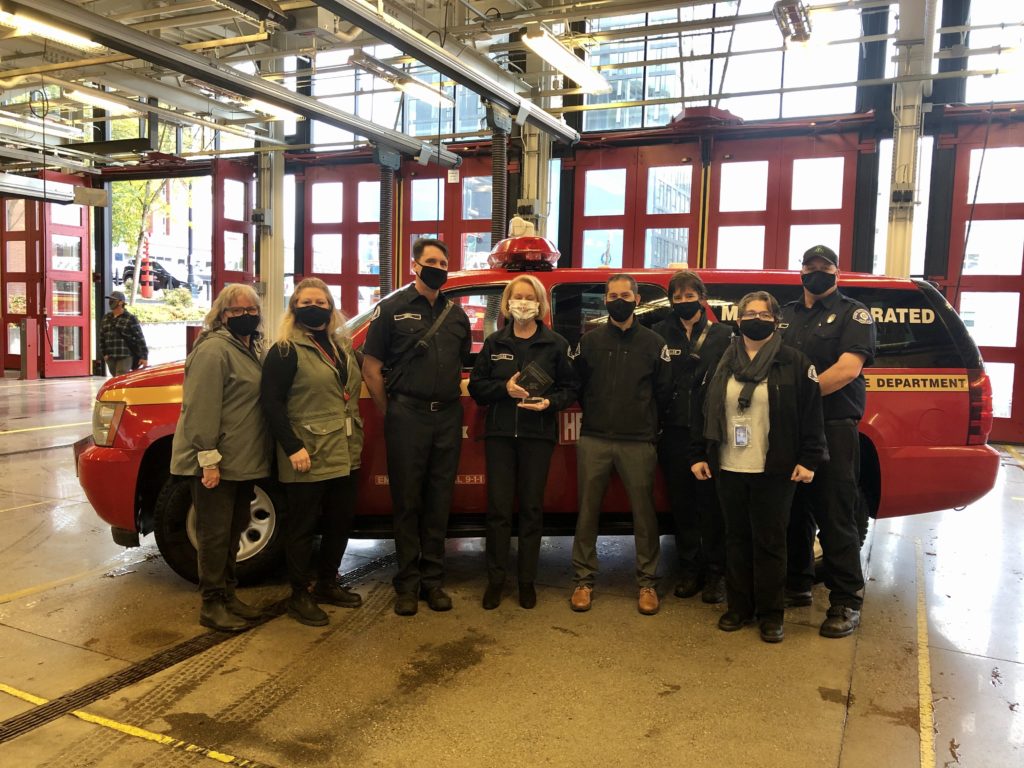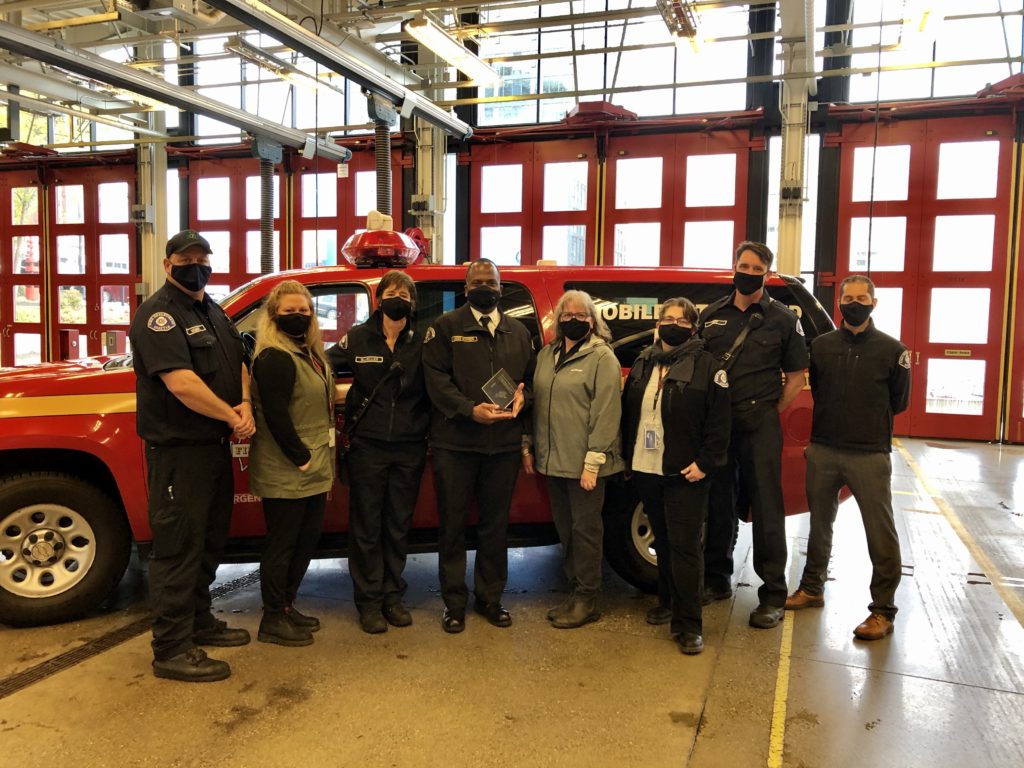Health One, High Utilizer Program, Vulnerable Adult Program round out successful models of Seattle Fire and Human Services partnership

On September 22, Aging and Disability Services, a division of the Seattle Human Services Department (HSD), received a 2020 n4a Aging Innovation Award from the National Association of Area Agencies on Aging (n4a) for their involvement in the City of Seattle’s Mobile Integrated Health partnership. The award was presented on the second day of the n4a’s four-day virtual national 2020 conference.
Aging and Disability Services (ADS) is the Area Agency on Aging for Seattle and King County—one of 600+ “AAAs” in the country authorized by the federal Older Americans Act and recognized by the federal Administration on Community Living and state DSHS Aging and Long-Term Support Administration.
For four years, HSD has partnered with the Seattle Fire Department through programs focused on high utilizers and vulnerable adults. In 2019, Health One—a dedicated, dispatched response model that links individuals with appropriate healthcare, behavioral health, and social service providers—was born, rounding out the city’s Mobile Integrated Health partnership.
“As one of the fastest growing cities in the nation, our ability to respond to non-emergency 911 calls has been tested,” said Mayor Jenny A. Durkan. “Our Mobile Integrated Health partnership, including Health One and the High Utilizer and Vulnerable Adult programs, has resulted in significant reductions in 911 calls as well as unnecessary trips to emergency rooms. With these resources our community can receive the care and service they need while ensuring our first responders are available for true emergencies.”
In 2019, about 44 percent of nearly 73,000 medical calls received by Seattle’s 911 dispatch center were non-life-threatening, including behavioral health and addiction issues and calls from people with chronic conditions. Less than eight percent of those calls required paramedic transport. To address non-emergency requests, the City pioneered Health One, a program that includes a dedicated vehicle staffed with two firefighters (who are also emergency medical technicians) and an HSD social worker with experience serving people with diverse needs, including chronic conditions experienced by older people and individuals with disabilities.
“HSD social workers follow up with 911 callers whose complaints do not present immediate danger, and they help identify adults at risk for abuse and self-neglect,” said ADS division director Cathy Knight. “Our staff has provided training and resources for high-utilizing locations like shelters and assisted living facilities. Through Health One, our social workers are involved in triage, assessment, referrals, transport, and warm handoffs to other providers. They provide on-scene resources that address the root causes of distress.”
The MIH also collaborates with law enforcement, Adult Protective Services, the King County Prosecuting Attorney’s Office, Public Health—Seattle & King County, and area hospitals to improve identification of at-risk adults, connect them with resources needed for stability, increase care coordination, provide feedback to reporting agencies, and improve health outcomes.
In March 2020, the Mobile Integrated Healthcare partnership adapted protocols to respond to the COVID pandemic. Initially, firefighters continued to go out on the Health One rig and ADS case managers helped remotely, either at SFD headquarters or from telecommuting sites. Once adequate safety protocols were established, ADS case managers returned to riding the rig with the firefighters.
Initially, Health One focused on serving people in the downtown core, Pioneer Square, Belltown, and Capitol Hill. As part of COVID response, service was expanded to SODO, Mount Baker, Rainier Valley, the University District, Ballard, and West Seattle. Citywide, any Seattle Fire unit can refer a client experiencing secondary impacts of the virus or quarantine.
“Seattle’s Mobile Integrated Health partnership has been an innovative and critical lifeline for those in need, with the demands of quarantine, isolation, and social distancing further impacting already vulnerable people,” said Seattle Human Services Director Jason Johnson. “Disconnection from healthcare, social services, and behavioral networks have increasingly taken a toll on our community. Our social workers are highly skilled in connecting vulnerable individuals with services and supports they need for stability. Kudos to HSD and Seattle Fire staff for their incredible work.”
“Our Mobile Integrated Health partnership had already increased efficiency and effectiveness of our emergency response system when COVID hit,” said Seattle Fire Chief Harold Scoggins, who helps lead the City’s COVID response efforts. “Meeting the medical and social needs of low acuity and socially vulnerable patients—housed or not, in shelters, apartments, supported housing, camps and RVs—means that more people are able to complete the recommended period of quarantine or isolation, and will be better served in the future.”

For more information about Seattle’s Mobile Integrated Health program, visit www.seattle.gov/mobileintegratedhealth; about Aging and Disability Services, visit www.agingkingcounty.org; and about n4a’s 2020 Innovation and Achievement Awards, visit www.n4a.org/Files/2020%20AIA%20FINAL.pdf.